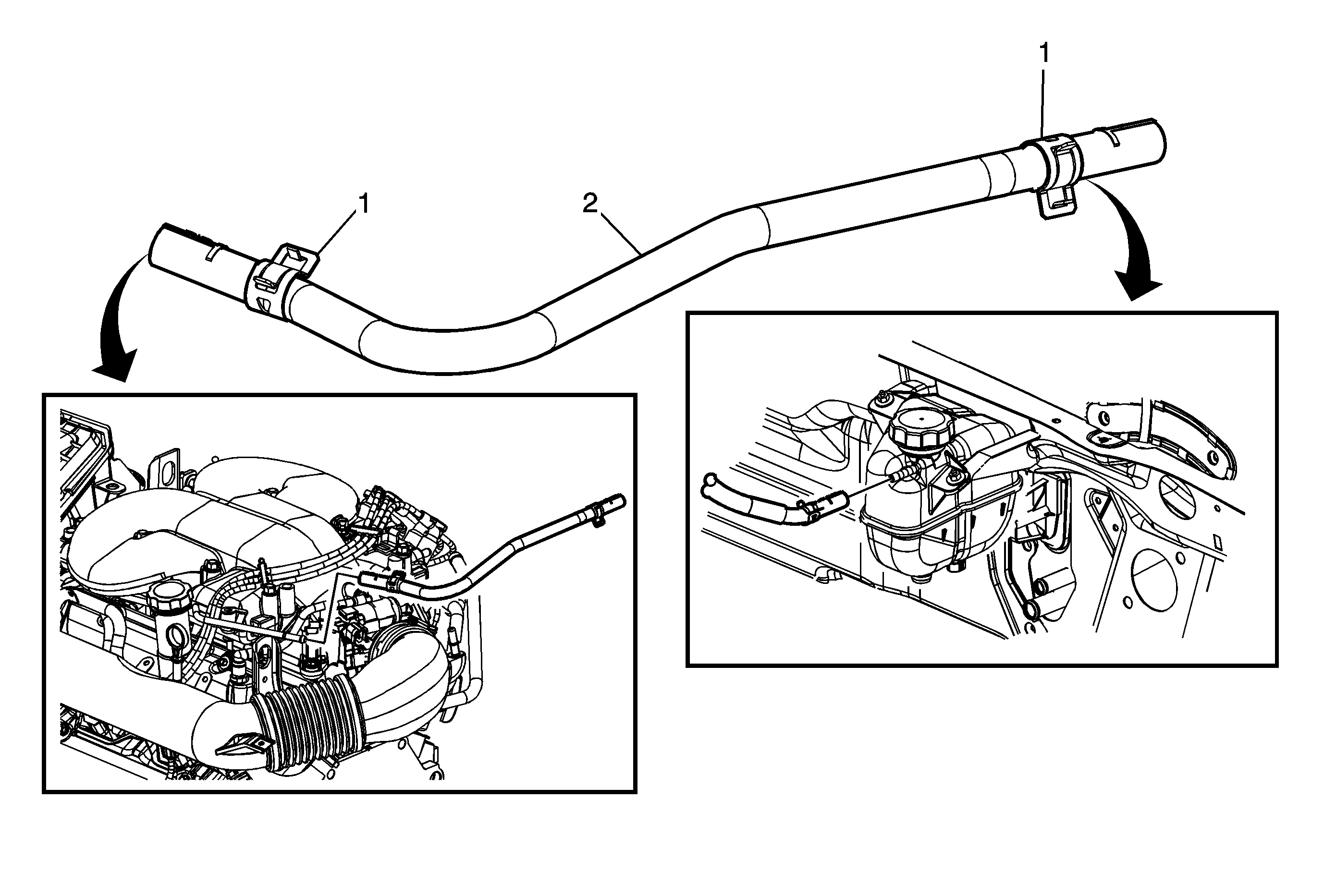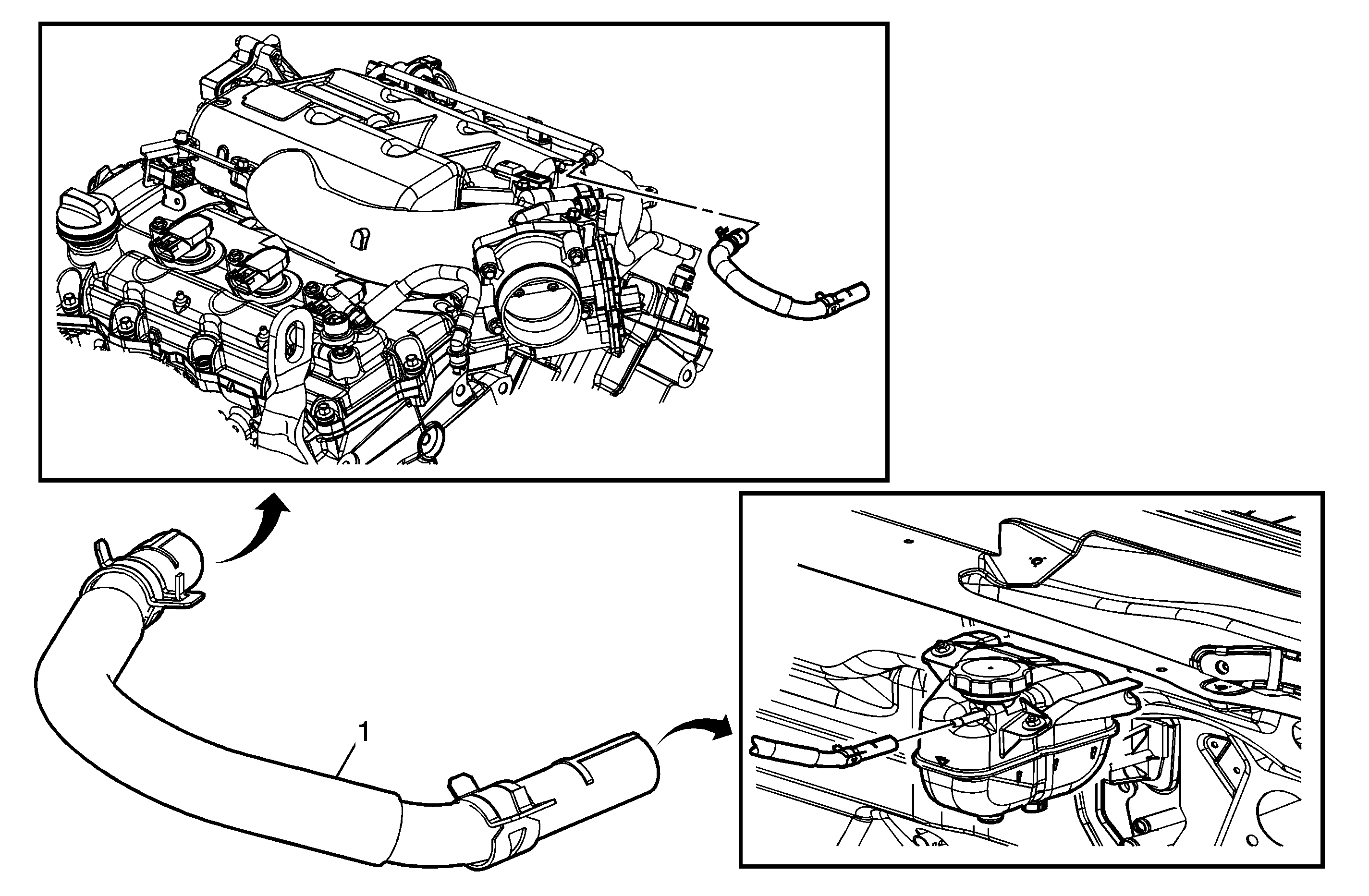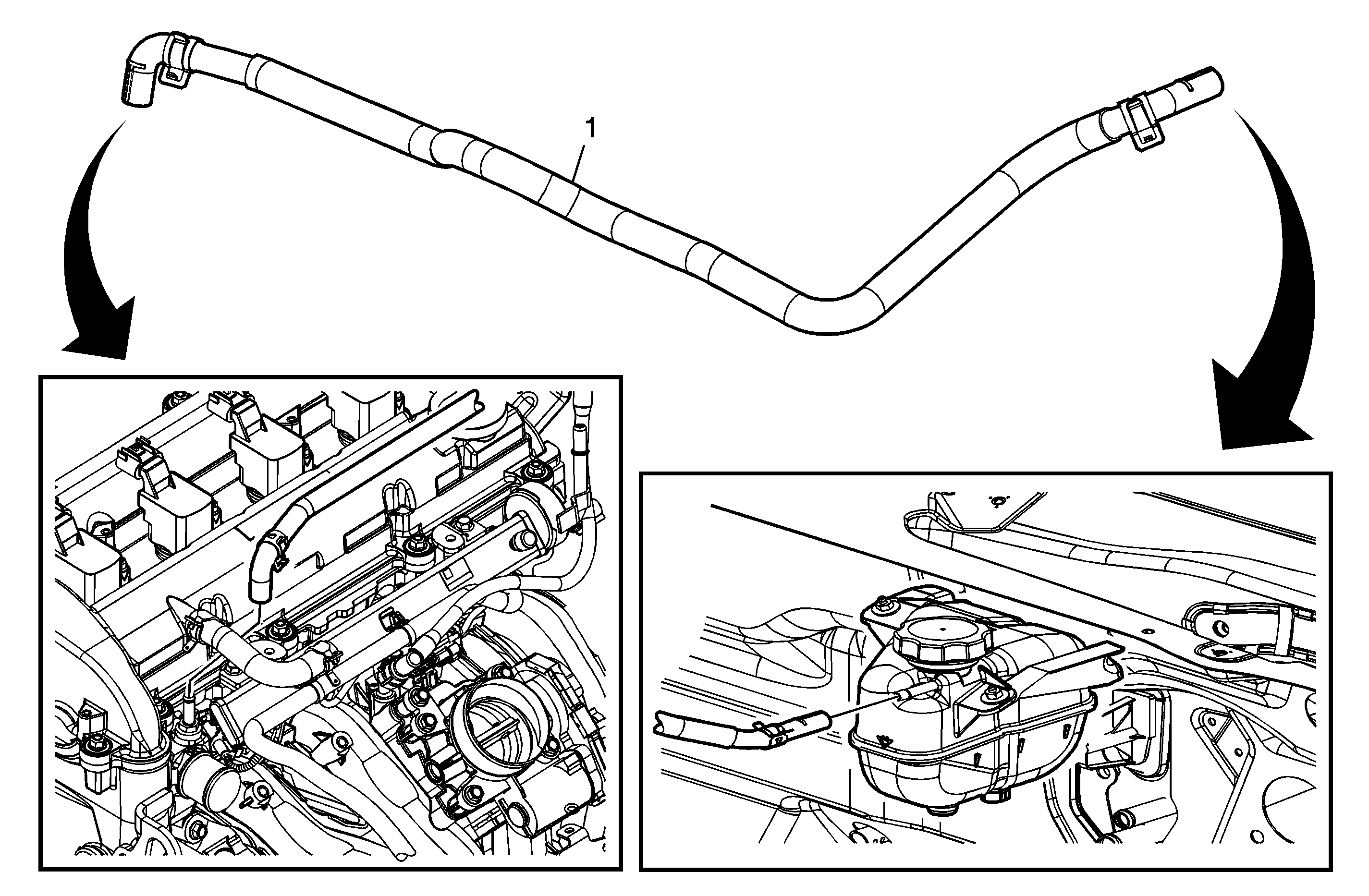Radiator Surge Tank Inlet Hose/Pipe Replacement LZ4

Callout | Component Name |
|---|---|
|
Caution: With a pressurized cooling system, the coolant temperature in the radiator can be considerably higher than the boiling point of the solution at atmospheric pressure. Removal of the surge tank cap, while the cooling system is hot and under high pressure, causes the solution to boil instantaneously with explosive force. This will cause the solution to spew out over the engine, the fenders, and the person removing the cap. Serious bodily injury may result. Preliminary ProceduresPartially drain the cooling system. Refer to Cooling System Draining and Filling . | |
1 | Surge Tank Inlet Hose Clamp (Qty: 2) Special ToolsJ 38185 Hose Clamp Pliers |
2 | Surge Tank Inlet Hose |
Radiator Surge Tank Inlet Hose/Pipe Replacement LY7

Callout | Component Name |
|---|---|
|
Caution: With a pressurized cooling system, the coolant temperature in the radiator can be considerably higher than the boiling point of the solution at atmospheric pressure. Removal of the surge tank cap, while the cooling system is hot and under high pressure, causes the solution to boil instantaneously with explosive force. This will cause the solution to spew out over the engine, the fenders, and the person removing the cap. Serious bodily injury may result. Preliminary Procedures
| |
1 | Radiator Surge Tank Inlet Hose |
Radiator Surge Tank Inlet Hose/Pipe Replacement LAT

Callout | Component Name |
|---|---|
|
Caution: With a pressurized cooling system, the coolant temperature in the radiator can be considerably higher than the boiling point of the solution at atmospheric pressure. Removal of the surge tank cap, while the cooling system is hot and under high pressure, causes the solution to boil instantaneously with explosive force. This will cause the solution to spew out over the engine, the fenders, and the person removing the cap. Serious bodily injury may result. Preliminary Procedures
| |
1 | Surge Tank Inlet Hose ProcedureReposition the 2 surge tank hose clamps using the J 38185 . Special ToolsJ 38185 Hose Clamp Pliers |
